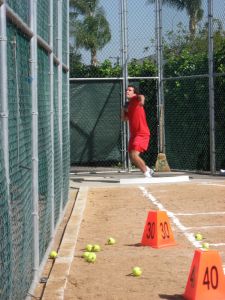by Jen Owens
I have a confession to make. I have never responded well to the image of Jesus that I find in the Gospel of John. There’s something strange to me about John’s Jesus. He seems almost ghastly at times, with not enough humanity to plant his feet squarely on the ground; to the contrary, he almost floats above it, touching down only long enough to call himself cryptic things like the Way, as Becky Fullan reminds us in her essay in From the Pews in the Back. And he often seems to know the ending of the story before the rest of us do. I don’t know about you, but I can’t stand it when people are like that—when they’ve already seen the movie, already read the book, already heard the punchline, and hang it over your head, almost tauntingly. None of this fits with the image of Jesus that often guides my spirituality—the Jesus whose mother proclaimed the Magnificat, the Jesus with a real body that sweats and gets hungry and grows tired, the Jesus who begins his public ministry by proclaiming freedom to all who are bound, the Jesus who cares about other people’s bodies and their most basic needs in the Beatitudes, the Jesus who is one with all our brokenness at the cross, the Jesus who rises again and eats and eats and eats some more with his friends.
As a result, when I came across this Sunday’s Gospel passage, I was predisposed not to love it. But something shifted in me as I read. The earnestness of Jesus’ prayer moved me, in a way wholly unexpected. Maybe it’s because our church feels so divided for such sound reasons. Maybe it’s because people I care about are struggling with leaving. Maybe it’s because I relate to them more than I want to admit. Maybe it’s because I am regularly reminded of how deeply my own brokenness affects the way I walk in the world.
Whatever the reason, the Jesus of this passage reminded me that he does not turn his back to the sufferings of his people, even if the institutional wing of one of his churches chooses to emphasize the “pastoral instead of the political,” as though the two are entirely unrelated. He reminds me of the individual priests and nuns and pastoral workers who stand with those the sex abuse scandals have affected most directly. He reminds me that he is with us in our pain, that he feels it, too. He reminds me that healing can come to even the most broken world, the most broken church, the most broken community, the most broken family, the most broken person, in body and spirit alike. He reminds me that there is still hope and that the risen Christ is present in that hope. Continue reading
Filed under: Jen Owens, Sunday reading reflections | Tagged: Catholic Church, catholicity, community, crucifixion, Easter, healing, institutional church, sex abuse | Leave a comment »








